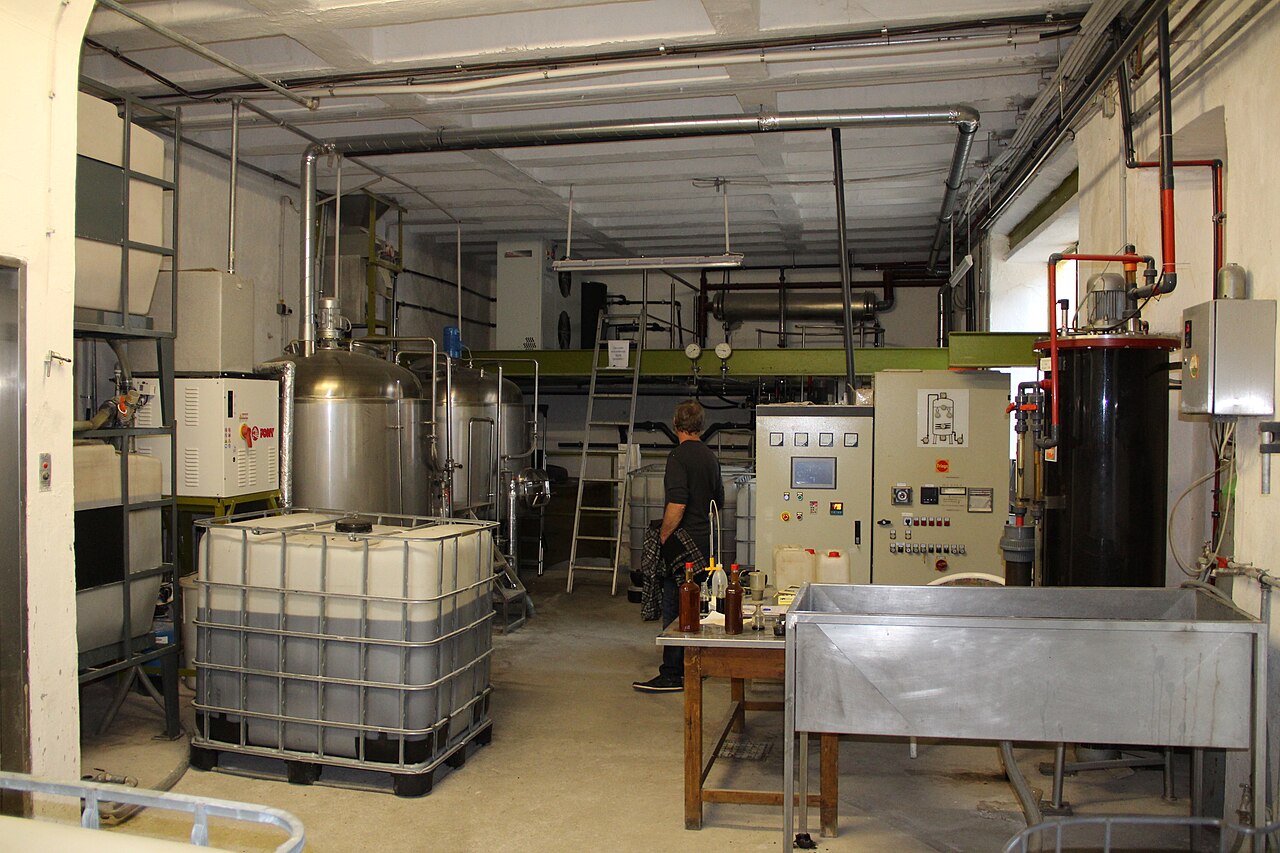Fast aerobic fermentation stainless steel vessels. Image by Braveheart, CC BY-SA 4.0.
A groundbreaking treatment that supercharges ordinary vinegar to help wounds heal faster and fight off infection has been developed.
Wounds that do not heal are often due to bacterial infections. This condition is particularly dangerous for the elderly and people with diabetes, cancer and other conditions. In turn, delayed wound healing and chronic wounds are associated with comorbidities, including diabetes, advanced age, immunosuppression and autoimmune disease.
Scientists from the University of Bergen have succeeded in enhancing vinegar’s antibacterial properties by infusing it with cobalt-based carbon nanoparticles. The resultant nano-boosted solution kills harmful bacteria from both inside and outside their cells while remaining safe for humans.
Vingear
Acetic acid (more commonly known as vinegar, produced by the fermentation of sugars or ethanol) has been used for centuries as a disinfectant (Hippocrates, for example, reported on the use of vinegar in combination with honey to combat infection and protect open skin wounds), but it is only effective against a small number of bacteria, and it does not kill the most dangerous types.
Pathogens that commonly infect wounds, such as Staphylococcus aureus and Pseudomonas aeruginosa, express specialised virulence factors that facilitate adherence and invasion.
New compound
As part of the study, researchers added cobalt-containing carbon quantum dot nanoparticles to weak acetic acid (vinegar) to create a potent antimicrobial treatment. They tested this mixture against several pathogenic species, including the drug resistant Staphylococcus aureus, Escherichia coli (E. coli) and Enterococcus faecalis.
Carbon quantum dots are versatile in a wide range of applications. The characteristics enable precise tuning of their optical and electronic properties. Their photoluminescence—combined with their biocompatibility, water solubility, and various surface functional groups—position them as important components in the fields of nanotechnology, materials science, and medicine.
It was observed how the acidic environment from the vinegar made bacterial cells swell and take up the nanoparticle treatment (acetic acid disrupts the cell membrane of bacteria, leading to their death by causing an increase in internal pH levels and denaturing proteins). This increased the vulnerability of the cells to the secondary substances.
Once exposed, the nanoparticles attacked the bacteria from both inside the bacterial cell and also on its surface, causing them to burst.
A video about the research can be found here (opens in YouTube).
Tests on mice showed the compound healed infected wounds effectively, attacking the common infective bacteria. The discovery could be a new breakthrough against antibiotic-resistant infections.
Significance of the study
The anti-bacterial boost in vinegar found in the study could potentially be an important contribution towards the ongoing battle against the rising antimicrobial resistance levels worldwide, with an estimated 4.5 million deaths associated with a direct infectious disease.
The research appears in the journal ACS Nano, titled “Cobalt-Doped Carbon Quantum Dots Work Synergistically with Weak Acetic Acid to Eliminate Antimicrobial-Resistant Bacterial Infections.”

